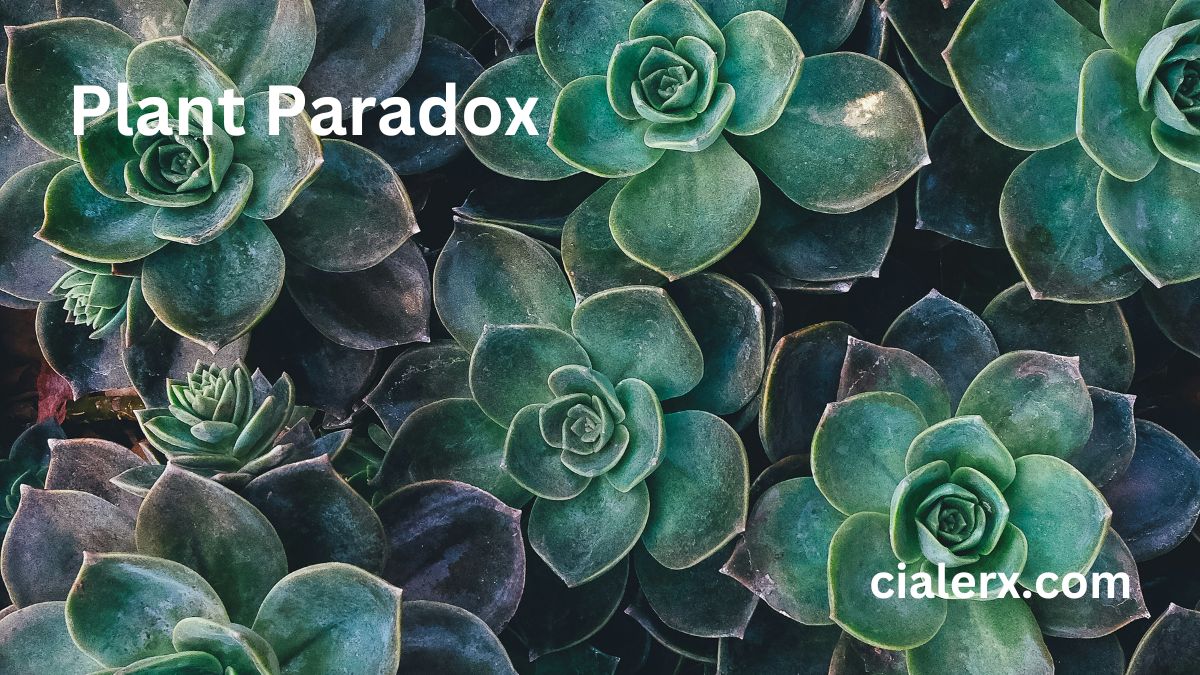BLOG
The Future of Sales: Leveraging Advanced CRM for Competitive Advantage

In today’s fast-paced business landscape, sales teams are constantly seeking ways to gain a competitive edge. The key? Advanced Customer Relationship Management (CRM) systems. These tools have evolved far beyond simple contact management; they now empower organizations to understand their customers on a deeper level and streamline their operations like never before.
Imagine having the ability to predict customer behavior, personalize marketing efforts in real-time, and automate mundane tasks—all at your fingertips. Advanced CRM is redefining what it means to sell effectively, enabling businesses not just to meet expectations but exceed them consistently.
As we delve into the future of sales, we’ll explore how advanced CRM can elevate your strategy and help you stay ahead of the competition. Whether you’re a seasoned sales professional or just starting out in this dynamic field, understanding these innovations could be the game-changer you’ve been searching for. Let’s unpack this exciting evolution together!
Understanding the Evolution of CRM
The journey of Customer Relationship Management (CRM) began in the 1980s with simple databases. Early systems focused solely on storing customer contacts and transaction histories. They were basic yet groundbreaking.
As businesses recognized the value of nurturing relationships, CRM transformed into more sophisticated tools in the 1990s. This era saw features like sales tracking and marketing automation emerge, allowing teams to communicate effectively with customers.
With the rise of the internet in the early 2000s, cloud-based CRMs emerged. These platforms made it easier for companies to access data from anywhere, leading to increased collaboration among sales teams.
Today’s advanced CRM systems integrate artificial intelligence and machine learning capabilities. They analyze vast amounts of data to forecast trends and personalize customer interactions automatically. The evolution continues as technology reshapes how businesses connect with their clients, paving the way for even greater innovations ahead.
Key Features of Advanced CRM Systems
Advanced CRM systems come equipped with a range of features designed to enhance efficiency and streamline sales processes. One standout function is automation, which helps teams manage repetitive tasks effortlessly. This allows sales reps to focus more on building relationships rather than administrative duties.
Another critical feature is real-time analytics. With instant access to performance data, sales teams can make informed decisions quickly. Predictive analytics further empowers organizations by forecasting customer behaviors and trends.
Collaboration tools are also vital in advanced CRMs. They enable seamless communication among team members, ensuring everyone stays aligned on goals and strategies.
Customization options allow businesses to tailor the system according to their specific needs, making it adaptable as they grow. Integration capabilities ensure that advanced CRM solutions work harmoniously with existing software environments for a cohesive user experience.
Benefits of Advanced CRM for Sales Teams
Advanced CRM systems empower sales teams to enhance their performance dramatically. These platforms streamline communication, ensuring that every team member stays informed and aligned.
With intuitive dashboards, sales professionals can track leads effortlessly. This visibility allows for timely follow-ups and personalized interactions, which build stronger relationships with potential clients.
Automation features reduce administrative burdens. By automating routine tasks like data entry or scheduling calls, sales reps can devote more time to closing deals.
Moreover, advanced CRMs provide valuable insights through analytics. Sales teams can identify trends and customer behaviors that inform better strategies.
Collaboration tools within these systems foster teamwork across departments. The synergy between marketing and sales leads to cohesive campaigns that drive results effectively.
In a competitive landscape, the agility offered by advanced CRM is invaluable. It not only enhances efficiency but also positions sales teams ahead of the curve in meeting customer needs.
Real-Life Examples of Companies Utilizing Advanced CRM
Salesforce is a prime example of leveraging advanced CRM. Their platform enables businesses to integrate customer data seamlessly. Companies like Adidas use Salesforce to enhance customer interactions, leading to personalized marketing strategies.
Another notable case is HubSpot, which employs its own CRM tools for internal operations. By analyzing behavior patterns, they optimize lead nurturing and account management effectively. This has resulted in increased conversion rates and improved client relationships.
Zendesk showcases how advanced CRM can streamline support processes. They utilize their system to track ticket resolution times and customer feedback efficiently. This insight allows them to improve service quality continually.
Coca-Cola harnesses the power of advanced CRM through predictive analytics. By anticipating consumer preferences, Coke tailors campaigns that resonate deeply with target demographics, boosting brand loyalty and sales growth significantly across regions.
Challenges and Limitations of Advanced CRM
Advanced CRM systems come with their own set of challenges. The complexity of implementation can often deter organizations from making the switch. Integrating a new system into existing workflows requires time, training, and resources.
Data privacy is another critical concern. As companies collect more customer information, ensuring compliance with regulations like GDPR becomes paramount. A misstep could lead to legal ramifications.
User adoption is also a significant hurdle. Employees may resist change or struggle to adapt to new technology. This can hinder the effectiveness of the CRM system and negate its potential benefits.
Maintenance costs can add up over time too. Regular updates and support are necessary for optimal performance but might strain budgets unexpectedly.
While advanced features are appealing, they may overwhelm users who only need basic functionalities. Striking the right balance between sophistication and usability remains an ongoing challenge in many organizations using advanced CRM tools.
Leveraging Data Analytics and AI in Sales with Advanced CRM
Advanced CRM systems harness the power of data analytics and artificial intelligence, transforming how sales teams operate. By tapping into historical data, these tools identify trends that guide decision-making.
AI algorithms can predict customer behavior with remarkable accuracy. This insight allows sales professionals to tailor their approaches, increasing the chances of conversion. Personalized outreach becomes more streamlined when AI suggests optimal times for engagement based on past interactions.
Data analytics also helps in segmenting customers effectively. Sales teams can focus efforts on high-value prospects while nurturing relationships with existing clients through targeted campaigns.
Moreover, real-time dashboards provide visibility into performance metrics. Teams can quickly pivot strategies if something isn’t working as planned, ensuring they remain agile in a competitive landscape.
The synergy between advanced CRM and AI creates opportunities for deeper customer connections and ultimately drives revenue growth for businesses willing to embrace this technology.
The Future Outlook for Advanced CRM in Sales
The future of sales is intricately tied to the evolution of advanced CRM systems. As technology advances, these platforms will integrate even more seamlessly with other business tools. This integration will allow for streamlined processes and improved customer interactions.
Artificial intelligence plays a crucial role in this transformation. It enhances predictive analytics, enabling sales teams to anticipate customer needs better than ever before. Personalization at scale becomes achievable, making every interaction meaningful.
Moreover, mobile capabilities are expected to grow significantly. Sales professionals will have access to real-time data on the go, empowering them to make informed decisions instantly.
Collaboration features within advanced CRMs are also on the rise. Teams can share insights and strategies more effectively, creating a unified approach that drives results.
As businesses adapt to changing market dynamics and consumer expectations, advanced CRM will become an indispensable tool for maintaining competitive advantage in sales.
Conclusion
The landscape of sales is changing rapidly. Advanced CRM systems are at the forefront of this transformation.
Companies that embrace these tools gain a competitive edge. They can better understand customer needs and personalize their approach.
With data analytics and AI integration, organizations streamline processes and enhance decision-making. This leads to improved efficiency in sales teams.
As technology advances, so will the capabilities of advanced CRM systems. The future holds exciting possibilities for businesses ready to adapt.
Sales strategies will evolve alongside these advancements, making it crucial for companies to stay informed. Adopting innovative solutions today paves the way for success tomorrow

BLOG
What Are All the Courses in Empower? A Complete Overview for Aspiring Students

Are you ready to take the next big step in your education? If you’re exploring diverse learning opportunities, Courses in Empower might just be what you’re looking for. Known for its innovative approach and comprehensive curriculum, Empower offers a range of courses designed to equip students with essential skills for today’s job market. Whether you’re interested in technology, business, healthcare, or creative arts, there’s something here tailored just for you. As we dive deeper into this overview of Empower’s offerings, you’ll discover how this educational platform can shape your future and set you on the path to success. Let’s explore all the courses at Empower and find out why they stand out!
The Philosophy and Mission Behind Empower
Empower is built on the belief that education should be accessible and transformative for all. At its core, this institution promotes a student-centered approach. It values individuality and encourages learners to pursue their unique passions.
The mission of Empower extends beyond mere academics. It aims to foster critical thinking, creativity, and resilience in students. By cultivating these essential skills, Empower prepares individuals not just for jobs but for lifelong success.
Inclusivity is another key principle guiding Empower’s philosophy. The organization strives to create a diverse community where every voice matters. This enriching environment enhances collaboration and deepens understanding among peers.
Empower seeks to ignite curiosity and inspire action in its students. Education becomes a journey of self-discovery rather than merely acquiring knowledge within traditional confines.
Courses Offered at Empower
Empower offers a diverse range of courses tailored to meet the needs of today’s learners. Whether you’re looking for foundational skills or advanced expertise, there is something for everyone.
From technology and business management to art and design, each program is crafted with industry relevance in mind. Students can choose from both short-term certifications and comprehensive degree paths.
Courses are designed by experienced professionals who understand market demands. This ensures that students gain practical knowledge applicable in real-world scenarios.
Additionally, Empower emphasizes hands-on learning through workshops and projects. Students engage directly with their subjects, enhancing retention and understanding.
With flexible scheduling options, learners can balance their studies with personal commitments. Empower truly caters to aspiring students ready to embark on their educational journey.
How Empower Prepares Students for Success
Empower takes a holistic approach to student success. The curriculum is designed not just for knowledge but for real-world application. Each course integrates practical skills that align with industry demands.
Students engage in hands-on projects, allowing them to build portfolios while they learn. This experience fosters confidence and prepares them for future challenges.
Moreover, Empower offers personalized mentoring. Faculty members are dedicated to guiding students through their academic journeys, providing tailored advice based on individual goals.
Networking opportunities abound as well. Workshops and events connect students with professionals from various fields, enhancing career readiness and expanding horizons.
The learning environment encourages collaboration among peers, promoting teamwork and communication skills essential in today’s workplace. By focusing on both academic rigor and personal development, Empower ensures every student is equipped to thrive after graduation.
Student Testimonials and Success Stories
At Empower, student experiences paint a vivid picture of transformation. Many graduates share stories of how the curriculum ignited their passion and shaped their careers.
One former student recounted her journey from uncertainty to confidence. She praised the mentorship she received, which guided her in navigating complex subjects with ease.
Another success story comes from a recent graduate who landed his dream job shortly after completing the program. He attributes this achievement to hands-on projects that mirrored real-world challenges.
These testimonials highlight not just academic growth but personal development as well. Students often mention the supportive community that fosters collaboration and networking opportunities.
Empower’s impact resonates long after graduation, creating professionals ready to make meaningful contributions in their fields. Each story is unique yet speaks volumes about what students can achieve through dedication and hard work at Empower.
Application Process and Requirements
Applying to Empower is a straightforward process designed with students in mind. First, prospective students need to complete an online application form. This form gathers essential information about your academic background and interests.
Next, applicants are required to submit transcripts from previous educational institutions. These documents help the admissions team assess your qualifications effectively.
Additionally, letters of recommendation play a crucial role. They offer insights into your character and potential from teachers or mentors familiar with your strengths.
An interview might also be part of the selection process for certain programs. This conversation allows you to express your ambitions and ask any questions about Empower’s offerings.
Keep an eye on deadlines! Timely submission ensures that all aspects of your application receive full consideration as you embark on this exciting journey toward education at Empower.
Scholarships and Financial Aid Options
Empower understands that education can be a significant financial investment. To ease this burden, they offer various scholarships and financial aid options tailored to diverse student needs.
Scholarships are available based on merit, need, or specific criteria such as community service or academic excellence. These funds can significantly reduce tuition costs and make quality education more accessible.
In addition to scholarships, Empower provides guidance for federal and state financial aid applications. Students can explore grants and low-interest loans designed to support their educational journey.
The application process for these aids is straightforward. Prospective students are encouraged to reach out early for assistance in navigating these opportunities effectively.
With the right resources in place, Empower ensures that finances don’t stand in the way of achieving your goals.
Conclusion: Why Empower Is the Right Choice for Your Education
Choosing the right Educational trail is crucial for your future. Empower stands out as a beacon of opportunity, offering diverse courses tailored to meet today’s demands.
The supportive environment fosters growth and innovation. Students are encouraged to explore their passions while gaining practical skills that employers value.
With experienced instructors guiding you, learning becomes an enriching experience. They provide insights from real-world experiences that textbooks often overlook.
Networking opportunities abound at Empower. You’ll connect with industry leaders and fellow students, building relationships that last well beyond graduation.
Flexibility in course offerings caters to various lifestyles and commitments, ensuring everyone can pursue their academic goals without sacrificing personal obligations.
FAQs
When considering your educational path, understanding the options available is essential. Below are some frequently asked questions that can help clarify what you might need to know about Empower.
What types of courses does Empower offer?
Empower provides a diverse range of courses across various fields, including business, technology, health sciences, arts and humanities. This variety allows students to explore different interests and career paths.
Are courses at Empower offered online or in-person?
Many courses at Empower are available both online and in-person. This flexibility accommodates different learning styles and personal schedules.
How long do the programs typically take to complete?
Program lengths vary depending on the course structure. Most undergraduate programs are designed for four years, while certificate programs may be completed in a matter of months.
Is there support for international students at Empower?
Absolutely! Empower welcomes international students and has dedicated resources to assist with their transition into academic life here.
Can I transfer credits from another institution to Empower?
Yes! If you have previously attended another accredited institution, you may be able to transfer some credits towards your degree at Empower. It’s best to consult with an advisor regarding specific credit transfers.
What kind of extracurricular activities does Empower promote?
Empower encourages student involvement through clubs, organizations, volunteer opportunities, and events that cater to a wide array of interests. Engaging outside the classroom enriches the overall educational experience.
Choosing where to study is no small decision; being well-informed will empower you along this journey toward achieving your goals.
BLOG
Dr. Steven Gundry: Revolutionizing Nutrition with the Plant Paradox Approach

In a world where nutrition advice seems to change by the season, Dr. Steven Gundry stands out as a beacon of innovation. With his groundbreaking Plant Paradox approach, he challenges conventional wisdom about what we should eat for optimal health. By focusing on the hidden dangers lurking in many common foods—specifically lectins—Gundry offers a fresh perspective that has captivated both skeptics and health enthusiasts alike.
But who exactly is Dr. Gundry? A former heart surgeon turned nutritional expert, he combines years of medical knowledge with cutting-edge research to create a sustainable pathway to better well-being. His work invites us to reconsider our relationship with food and empowers individuals to take control of their health journey through informed dietary choices.
As we dive deeper into the principles behind the Plant Paradox diet, it becomes clear that this isn’t just another fad; it’s a revolutionary approach aimed at unlocking your body’s full potential while addressing some long-standing misconceptions about nutrition. Get ready to explore how these ideas can transform your eating habits and overall lifestyle!
The concept of lectins and their impact on health
Lectins are proteins found in many plants. They serve as a natural defense mechanism against pests and diseases. However, their presence in our diet can be controversial.
These molecules bind to carbohydrates, which may interfere with nutrient absorption. For some individuals, this interaction can lead to digestive issues and inflammation. It’s a topic that has sparked significant debate among nutritionists and scientists alike.
Certain foods high in lectins include beans, whole grains, and nightshade vegetables like tomatoes and peppers. While they offer health benefits for many people, those sensitive to lectins might experience discomfort or other adverse effects.
Understanding how lectins work is crucial for anyone exploring dietary changes or struggling with gut health issues. Dr. Steven Gundry emphasizes the importance of being mindful about these proteins when considering overall wellness strategies.
The benefits of following the Plant Paradox diet
Following the Plant Paradox diet can offer a wealth of health benefits. At its core, this approach focuses on reducing lectin intake, which may lead to improved digestion and gut health.
Many people report increased energy levels after adopting this dietary style. By eliminating certain foods that contain high levels of lectins, individuals often feel lighter and more vibrant throughout their day.
Another notable advantage is weight management. The emphasis on whole, nutrient-dense foods promotes satiety while minimizing cravings for processed snacks. This balance helps many achieve sustainable weight loss without feeling deprived.
Additionally, the Plant Paradox diet encourages a diverse range of vegetables and healthy fats. This colorful array supports overall wellness and provides essential vitamins needed for optimal functioning.
Moreover, some followers have noticed improvements in skin clarity and reduced inflammation as they navigate away from inflammatory foods commonly found in traditional diets.
Success stories from individuals who have tried the Plant Paradox approach
Many individuals have experienced remarkable transformations after adopting the Plant Paradox approach. Stories of healing and renewed vitality abound.
One woman shared her journey from chronic fatigue to energetic living. After eliminating high-lectin foods, she found her energy levels soaring. Simple tasks became enjoyable again.
A middle-aged man reported significant weight loss and improved digestion. He embraced the dietary changes wholeheartedly, discovering new recipes that excited his palate without sacrificing flavor.
Another success story featured a mother who noticed improvements in her child’s behavior after cutting out lectin-rich foods. The positive shift was undeniable; their family dynamic flourished as they all embraced healthier eating habits together.
These testimonials highlight not just physical changes but emotional well-being too. People are reclaiming their lives through informed dietary choices, fostering hope for those still struggling with health challenges.
Criticisms and controversies surrounding the Plant Paradox diet
The Plant Paradox diet has faced its fair share of criticism. Some nutritionists argue that the focus on lectins oversimplifies complex dietary issues. They believe that many foods labeled as harmful can actually provide essential nutrients.
Skeptics also point to the lack of extensive scientific research backing Gundry’s claims. While anecdotal evidence abounds, rigorous studies supporting the effectiveness and safety of eliminating lectin-rich foods are still limited.
Moreover, some individuals find it challenging to adhere to such a restrictive regimen. This can lead to feelings of deprivation or frustration over time.
There’s concern about potential misinformation regarding food sources and health benefits, with critics urging people not to abandon whole food groups without proper guidance from healthcare professionals. As discussions continue, the debate around Gundry’s approach remains heated among experts and enthusiasts alike.
Tips for incorporating the Plant Paradox principles into your daily life
Start by replacing high-lectin foods in your pantry. Ditch common staples like wheat and legumes for alternatives such as almond flour or quinoa, which are more aligned with the Plant Paradox principles.
Next, embrace a variety of vegetables. Focus on leafy greens, cruciferous veggies, and low-sugar options. These will add essential nutrients while minimizing lectin intake.
When it comes to proteins, prioritize grass-fed meats and wild-caught fish. They provide quality nutrition without the added concerns associated with factory-farmed options.
Don’t forget healthy fats! Incorporate avocados, olive oil, and nuts into your meals for better satiety and flavor.
Meal prep is key to success. Plan your week ahead to avoid last-minute temptations that might lead you back to high-lectin choices.
Listen to your body’s responses. Keep track of how different foods make you feel; adjust accordingly for optimal well-being.
Conclusion: Why the Plant Paradox may be the future of nutrition
The Plant Paradox approach has sparked a significant dialogue about our relationship with food. Dr. Steven Gundry’s insights challenge traditional dietary norms and invite us to rethink what we put on our plates.
As more individuals share their transformative experiences, the appeal of this diet continues to grow. Many find relief from chronic conditions, improved digestion, and even weight loss by embracing lectin-free eating. This shift in perspective encourages many to reconsider not just what they eat but how those foods interact with their bodies.
Though there are criticisms surrounding some aspects of the Plant Paradox diet, its principles resonate with a growing community seeking better health through nutrition. With an emphasis on whole foods, healthy fats, and reduced inflammation, it aligns well with current trends toward mindful eating.
Integrating these principles into daily life may seem daunting at first. However, simple changes can lead to profound benefits over time. As awareness around gut health expands and science continues to evolve, adopting the Plant Paradox methodology could pave new pathways for nutritional healing.
Dr. Steven Gundry’s work is gaining traction as people become increasingly interested in personalizing their diets for optimal wellness rather than adhering strictly to conventional guidelines. For many navigating complex health challenges or simply striving for better overall vitality, the suggestions within the Plant Paradox framework offer hope—and perhaps a glimpse into the future of nutrition itself.
BLOG
Understanding the H-1B Visa: A Comprehensive Guide for Employers and Employees

Navigating the complexities of immigration can be daunting, especially when it comes to the H-1B Visa. This program has become a crucial pathway for skilled foreign workers seeking employment in the United States. For employers, utilizing this visa opens up a world of talent that may otherwise remain untapped. Whether you’re an employer looking to fill specialized roles or an employee eager to explore job opportunities in America, understanding the ins and outs of the H-1B Visa is essential. Let’s dive into what makes this visa so significant and how it can benefit both parties involved in this intricate process.
Eligibility Requirements for Employers and Employees
To qualify for the H-1B Visa, employers must meet specific criteria. They need to demonstrate that the position offered requires specialized knowledge and a bachelor’s degree or higher in a related field. This ensures that they are hiring individuals with the appropriate skills.
Employers must also establish their ability to pay the wage offered. This means showing financial stability and providing evidence of the salary level being met according to Department of Labor standards.
For employees, eligibility hinges on having a relevant degree or equivalent experience in their profession. They must prove their qualifications through academic credentials or professional achievements.
Additionally, prospective visa holders should not have any violations on previous visas if they’ve held them before. A clean immigration history plays an essential role in securing approval for this competitive visa program.
The Application Process for Employers and Employees
The application process for the H-1B Visa can seem daunting, but understanding each step can make it more manageable. Employers must first determine if their position meets the criteria of a specialty occupation. This typically requires at least a bachelor’s degree or its equivalent in the relevant field.
Once eligibility is established, employers file a Labor Condition Application (LCA) with the Department of Labor. This document outlines wage conditions and working environments to ensure fair labor practices.
After obtaining LCA approval, employers submit Form I-129, along with supporting documentation, to USCIS. This part involves demonstrating that both the job role and applicant meet specific qualifications.
Employees seeking an H-1B Visa must gather personal documents like educational credentials and past employment letters. They also need to attend an interview at a U.
S consulate if they are outside the country. Each detail counts in this intricate dance between employer and employee roles.
Common Questions and Concerns about the H-1B Visa
Many employers and employees have questions about the H-1B Visa. One common concern is job security for visa holders. Employees often worry that their status depends solely on their employer, which can create anxiety.
Another frequent question revolves around wages. Is it true that foreign workers are paid less than their American counterparts? The law mandates that companies pay H-1B holders at least the prevailing wage for their positions, ensuring fair compensation.
The application timeline also raises eyebrows. How long will it take to get approved? Processing times can vary significantly based on numerous factors, including current government workload.
Additionally, some wonder about renewal possibilities. Can an H-1B be extended beyond its initial three years? Yes, under certain conditions! However, navigating this process can be complicated without proper guidance or support.
These inquiries reflect a desire to understand the complexities of the H-1B Visa system more clearly.
Benefits of Hiring Foreign Workers through the H-1B Visa
Hiring foreign workers through the H-1B visa can significantly enhance a company’s talent pool. This program allows employers to access specialized skills that may not be readily available in the domestic labor market.
Companies benefit from diverse perspectives brought by international employees. Different backgrounds foster creativity and innovation, leading to better problem-solving strategies.
Additionally, hiring skilled foreign workers often leads to increased productivity. These professionals are typically highly educated and possess expertise in critical areas such as technology, engineering, and healthcare.
The H-1B visa also helps companies remain competitive on a global scale. By attracting top-tier international talent, businesses can advance their projects and initiatives more effectively.
Moreover, this process contributes to economic growth. Foreign workers pay taxes while supporting local economies through spending on goods and services, thus benefiting communities at large.
Challenges and Controversies Surrounding the H-1B Visa Program
The H-1B Visa program has sparked debates over its impact on the American job market. Critics argue that it allows companies to hire foreign workers at lower wages, potentially displacing U.
S. employees.
Concerns also arise about the abuse of the system by some employers who may prioritize profits over fair labor practices. This has led to calls for stricter regulations and oversight.
Moreover, the lottery system used to allocate H-1B visas creates uncertainty for both employers and potential employees. Many qualified candidates end up without a visa due to this randomness.
Another challenge is addressing public perception. Misinformation often clouds discussions about foreign workers’ contributions to innovation and economic growth in various sectors like technology and healthcare.
These complexities highlight why understanding all facets of the H-1B Visa program is crucial for stakeholders involved.
Tips for a Successful H-1B Visa Application
Gather all necessary documentation early. This includes job descriptions, employee qualifications, and proof of the employer’s financial stability. A well-prepared application stands out.
Focus on clarity in your forms. Clearly define the role and its requirements to help USCIS understand the necessity for a foreign worker in that position.
Employers should provide substantial evidence of their business operations. Financial statements, tax returns, and organizational charts can strengthen your case.
Consider seeking legal advice if needed. An immigration attorney can navigate complex regulations and ensure compliance with every requirement.
Stay updated on deadlines and changes to H-1B policies. Timely submissions are critical for avoiding unnecessary delays or denials.
Communicate openly with the prospective employee about expectations during this process. Clear communication fosters trust and collaboration throughout the application journey.
Conclusion: The Importance of Understanding the
Navigating the complexities of the H-1B Visa program is essential for both employers and employees. Understanding its intricacies can lead to successful applications, beneficial employment relationships, and a fulfilling career path for foreign professionals in the U.
S.
For employers, knowledge about eligibility requirements ensures compliance with labor laws while also helping to attract top talent from around the world. Employees benefit by knowing their rights and responsibilities within this framework, allowing them to make informed decisions about their careers.
Awareness of common concerns related to the H-1B Visa enables both parties to address challenges proactively. This understanding lays a solid foundation for fostering diverse workplaces that drive innovation and growth.
The benefits of hiring foreign workers through this visa cannot be overstated. Companies gain access to specialized skills that may not be readily available in the domestic market, leading to enhanced competitiveness.
However, being mindful of ongoing controversies surrounding immigration policies remains crucial. A collaborative approach will help create a more inclusive environment where everyone thrives.
By following practical tips throughout the application process, applicants increase their chances of success significantly. Whether you are an employer or an employee seeking your place under this visa category, grasping these concepts proves invaluable as you embark on this journey together.
Taking time to understand every facet of the H-1B Visa equips all stakeholders with necessary insights needed for smooth transitions into new roles or hiring practices—ultimately enriching America’s workforce landscape.
-

 HOME10 months ago
HOME10 months agoTarget Trends: What’s Hot in Stores Right Now?
-

 BUSINESS11 months ago
BUSINESS11 months agoCustomer Satisfaction: Definition and Importance
-

 HOME10 months ago
HOME10 months agoFrom Ideas to Innovations: How Inventors Change Our World
-

 HOME5 months ago
HOME5 months ago300 Types of Flowers with Names from A to Z (and Pictures)
-

 ENTERTAINMENT10 months ago
ENTERTAINMENT10 months agoFrom Isolation to Community: Strategies for Connecting with Readers
-

 HEALTH10 months ago
HEALTH10 months agoThe Truth About Vasectomies: Myths, Facts, and Everything In Between
-

 HEALTH10 months ago
HEALTH10 months agoRevitalize Your Waistline: 7 Delicious Flat Stomach Detox Water Recipes for Weight Loss
-

 TECH9 months ago
TECH9 months agoThe Risks of Disconnecting Your AC Compressor: A Comprehensive Guide